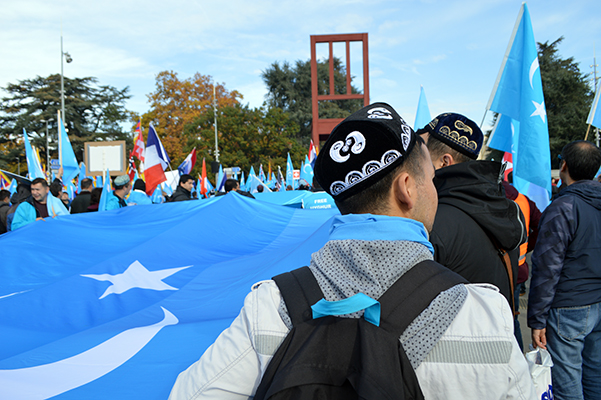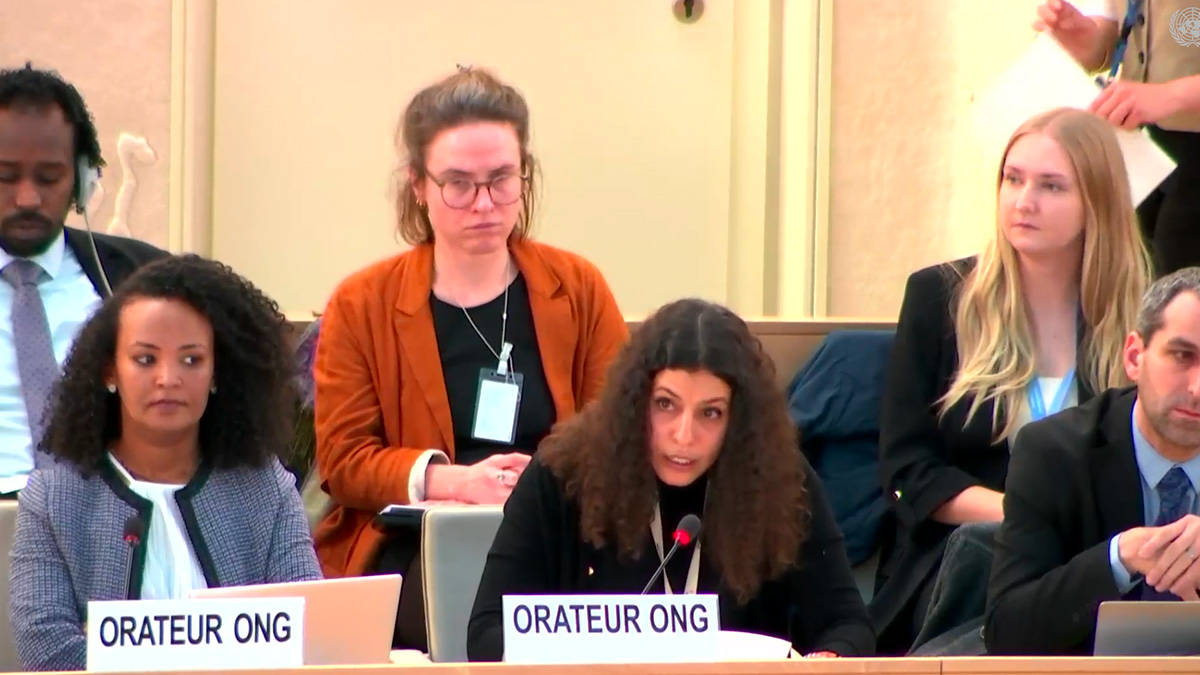Since 2011, Flor Calfunao Paillalef has been the UN representative of the Mapuche people, an indigenous people living between Chile and Argentina. In Chile, Flor’s home country which she fled in 1996, the Mapuche are the target of all kinds of abuses by the authorities: arbitrary arrests, unending detentions, judicial harassment – particularly through excessive use of Anti-terrorism laws, looting and even murder.
Those who fight for the defense of the Mapuche people in Chile are frequent targets of this type of abuse. And so are their relatives. Several members of Flor’s family have thus benefited from protection measures by the Inter-American Commission on Human Rights, due to the countless attacks that they have been subjected to because of their activities to defend human rights, their people and their ancestral territory.
Despite successive requests to Switzerland State Migration Service (French acronym SEM) since 2008; despite the recognition Flor’s work for human rights enjoys at the UN; despite the award she received from the City of Geneva in recognition of her commitment to human rights; despite threats to her safety in Chile: Flor has always been denied refugee status by the Swiss authorities. After the Federal Administrative Court took a final decision turning down her case on 11 July 2018, Flor was given until 16 August to leave the country. She therefore decided to ask for a humanitarian permit, a request that is still pending at the time of writing.
What about the threats awaiting Flor in Chile? Has the SEM ignored them or, by any chance, has it not been informed about them? The answer is quite different: the SEM has duly heard about the threats to Flor and the Mapuche people, but, the SEM says, these threats would only occur in Auracania, the home region of the Mapuche. All Flor would have to do then would be to settle in another region. Away from her relatives. And away from any means to continue her work for human rights and the rights of her people. This perspective is both unacceptable and contrary to Switzerland’s international commitments to human rights defenders.
Indeed, according to the UN Declaration on Human Rights Defenders, the primary obligation to protect human rights and those who defend them lies with States (article 2). Protecting defenders includes the adoption of “legislative, administrative and other measures necessary to ensure the effective guarantee of the rights and freedoms referred to in the (…) Declaration.” (Ibid.) A decision by Swiss authorities which would lead to endangering a human rights defender and putting a halt to their work is far from achieving this goal.
From Geneva, Flor is able to attend the Human Rights Council, where she is the only person bringing the concerns of her people to the agenda. If she is returned to Chile, the Mapuche people will have lost their voice at the UN. As a host country for the Council and the Office of the High Commissioner for Human Rights, Switzerland needs to be more consistent and be equally welcoming to those who actually defend human rights. Switzerland must review its decision to expel Flor. If not, this would be a blow to the Swiss State’s international credibility, which would be held accountable to the international community for endangering a human rights defender.




